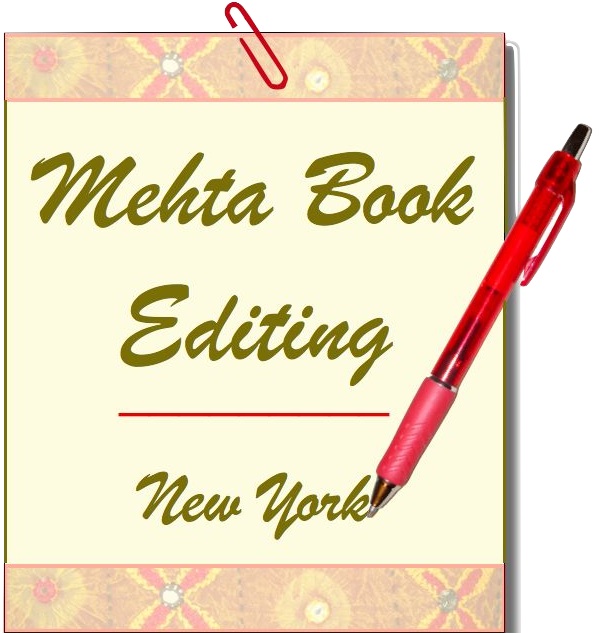Acquiring editor: An editor at a publishing company who acquires books for that company, usually via literary agents. An acquiring editor works with authors on the publisher's behalf, editing both to their own taste and the publisher's standards and requirements.
Book doctor: A book doctor “doctors” a manuscript by restructuring, cutting, and/or rewriting portions of it. Book doctoring goes a step beyond heavy line editing in that it often involves major changes to the manuscript.
Book publisher: A traditional book publisher licenses the right to publish the print and other versions of an author’s work (such as electronic and audio), depending on the deal. Authors who choose to self-publish are usually considered their own publisher and may retain or license out various rights to their book.
Collaborator: A professional writer who is paid to help write a book and may receive credit alongside the author. Unlike book doctors, who typically work with finished manuscripts, collaborators work with partial or unfinished manuscripts. Celebrities and politicians often hire a collaborator (or ghostwriter) if they are not equipped to write a book on their own.
Copyeditor: Focusing on the mechanical aspects of a manuscript, a copyeditor’s primary job is to correct grammatical and typographical errors and to ensure the language is clear, concise, and consistent. A copyeditor also does light fact-checking and usually steps in just before a book is typeset or formatted.
Critique: A written analysis of a manuscript that points out its strengths and weaknesses and offers ideas on how it can be improved. A fiction critique tends to cover plot, characterization, and other story elements, while a nonfiction critique might place a greater emphasis on structure and clarity of language. More thorough than an editorial assessment, “critique” is used interchangeably with “developmental editing” at Mehta Book Editing.
Developmental editing: An umbrella term for editing that helps the writer develop the content (rather than the technical aspects) of their manuscript. It may include an editorial letter, line edits, margin comments, and/or a follow-up meeting. Developmental editors are sometimes referred to as “substantive editors,” “structural editors” or “content editors.” At Mehta Book Editing, “developmental editing” is used interchangeably with “critique.”
Editorial assessment: Unlike a critique, which is a detailed analysis of a manuscript, an assessment offers a general evaluation from a bird’s-eye view. This big picture edit can be delivered in written or spoken form. At Mehta Book Editing, an editorial assessment includes a brief editorial letter.
Editorial letter: A formal letter to an author that points out the strengths and weaknesses of their work. At Mehta Book Editing, an editorial letter, also called an “edit letter,” is one part of the critique (or developmental editing) editorial service.
Editorial memo: An informal note to an author that points out the strengths and weaknesses of their work. The memo may contain bullet points rather than full sentences.
Ghostwriter: A professional writer who is paid to write a work officially credited to another person. Unlike a book doctor or collaborator, ghostwriters tend to write books from scratch. Celebrities and politicians often hire a ghostwriter (or collaborator) if they are not equipped to write a book on their own.
Hybrid author: An author who traditionally publishes some works and self-publishes others.
Hybrid publisher: A publisher that offers many of the same services as a traditional publisher but requires the author to cover the costs including editing, marketing, and print runs.
Indie (independent) publishing: May refer to small independent publishers or to independent authors who opt to self-publish.
Line editing: Like a copyeditor, a line editor checks for errors, but their primary focus is to provide stylistic feedback at the sentence level. In a light line edit (which tends to be suggestive), the editor corrects major errors and makes queries about specific lines and paragraphs. In a heavy line edit (which tends to be directive), the editor corrects major errors and rewrites specific lines and sections of the work. Heavy line editing is similar to book doctoring, but book doctoring is a deeper form of editing.
Literary agent: A literary agent represents writers and their written works to publishers and negotiates deals on behalf of their clients. Agents are paid a fixed percentage (usually 15%) of the proceeds of sales they negotiate. Some agents also assist their clients with self-publishing new or backlist works.
Margin comments: Comments in the margins of a manuscript that provide general feedback or specific suggestions. Margin comments can be equivalent to light line edits in that they offer a suggestive form of editing. They are comparable to heavy line edits, however, when sentences are rewritten in the form of comments rather than inline. Margin comments are less invasive than line edits. For this reason, some editors prefer providing margin comments to line edits.
Proofreader: A proofreader checks the typeset work against the copyeditor’s changes, corrects explicit errors only, and is typically the final set of eyes for the book before it goes into print.
Query letter: A brief letter that introduces the author and their work to an agent, much like a cover letter for a job application. It should include a description of the project and how it fits in today’s marketplace.
Trade publishing: Publishing aimed at general, mainstream markets (as opposed to scholarly, scientific, or other specialized markets). Trade publishing is the focus at Mehta Book Editing.
Writing coach: More a mentor than an editor, a writing coach supports and encourages writers via writing assignments and exercises and meets with them on the phone, online, or in person. Working with a coach is an ideal supplement or alternative to taking a writing class or joining a writers’ group.
Writing consultant: A publishing consultant answers specific questions based on industry experience, typically via phone or Zoom. At Mehta Book Editing, a consultation might include a discussion about publishing strategy, but it does not include agent referrals.

